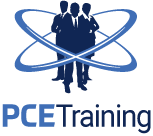Project Managers: – Who Are They?
With the number of ongoing projects ever increasing, so does the demand for successful Project Managers. When we talk about Project Management, it is fair to say that we have an almost ‘elite group’ of successful Project Managers. What is it that they do to deliver their projects on time, on budget and to the high quality standards that we demand from them?
When looking at how they do it, you will find they follow a specific set of processes to drive their projects home. They also understand but that every project carries with it both risks and uncertainty, but by doing their Planning and Risk Analysis thoroughly, they allow for the likelihood of the risks identified and have in place their mitigation strategies. This does not guarantee success as we all know, but rigid processes will improve the probability of delivering a successful project. Before we dive head first into some of these processes, let’s reflect on some indicators as to how we determine the success or failure of a project.
Failed Project
- Very low customer satisfaction index
- Schedule overrun
- Budget overrun
- Missed deliverables
Successful Project
- High Customer Satisfaction
- Project Milestones on Target and Approved
- Additional Work from Client
- Positive Feedback
- Project Budget on Target
Now we will move on to some of these processes that will aid you in delivering your projects successfully.
Planning
This is the most important part of your project. The planning stage still gets glanced over briefly by Project Managers and then results in a project filled with pain. Get your planning done thoroughly and don’t rush in head first.
Understand the project deliverables and develop your Work Breakdown Structure. Use your WBS and prepare your Project Schedule. I prefer using a PM Software system when preparing the schedule. I have found Smartsheet to be extremely easy to work with and it has some powerful functions that I use frequently.
Manage Project Scope
Ensure that every form of Scope Creep is covered by a Change or Variation Order. Do not fall into the trap of changing the scope based on a conversation only. This will mean that scope creep is managed and any variations are covered by a variation order that also covers any extension of time that may be associated with the change.
Communication
Any good Project Manager will be a good communicator. It is essential to communicate with the project team and client throughout the project. Effective communication ensures that every stakeholder remains up to speed with progress, status, change orders etc.
Project Management Office (PMO)
Depending on the size of your company and the number of projects you manage at a time, establishing a solid PMO will go a long way in aiding the Project Managers. This essentially is their support and if managed well, you will be able to develop solid templates that can be used across your projects, maintain accurate project documentation on completed projects etc.
Monitoring
This is amongst the nuts and bolts of the project and simply conducting an inspection once a week is not good enough! As the Project Manager you need to constantly monitor work packages that are being done and measure them against the project requirements. Any issues found need to be addressed immediately and not left until the end of the project where it becomes costly to fix.
Documentation
We cannot stress this enough. Always maintain the project documentation to ensure every change order, EOT, Non Conformance, Issues encountered, As Constructed drawings etc. are up to date.
Project Management Plan
This is your overall document that clearly describes how you will manage the project and is not to be confused with the project schedule. The PMP will include at least the following items:
- Scope Management
- Cost Management
- Human Resources Management
- Risk Management
- Communication Plan
- Procurement Management
- Change Management
These are just a few lines on the different processes that will make your task easier. Make sure you have a thorough understanding of these and put them to good use!
- Posted by pceadmin
- On July 18, 2016
- 0 Comments

0 Comments